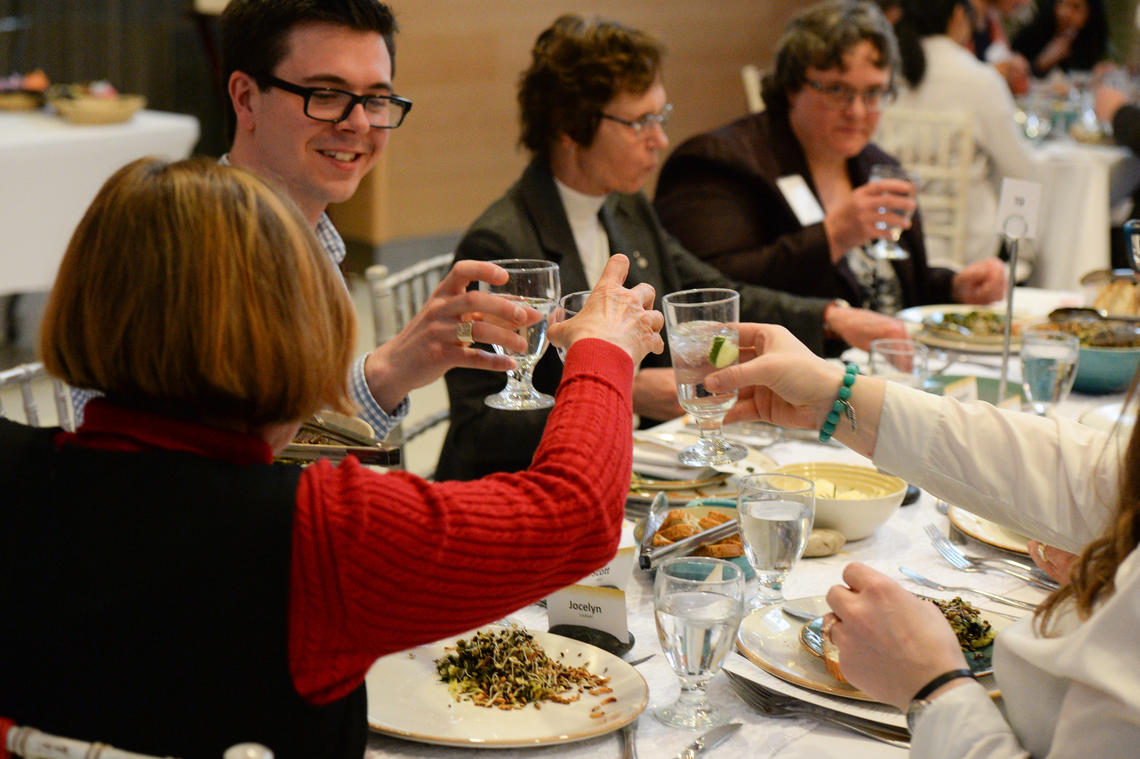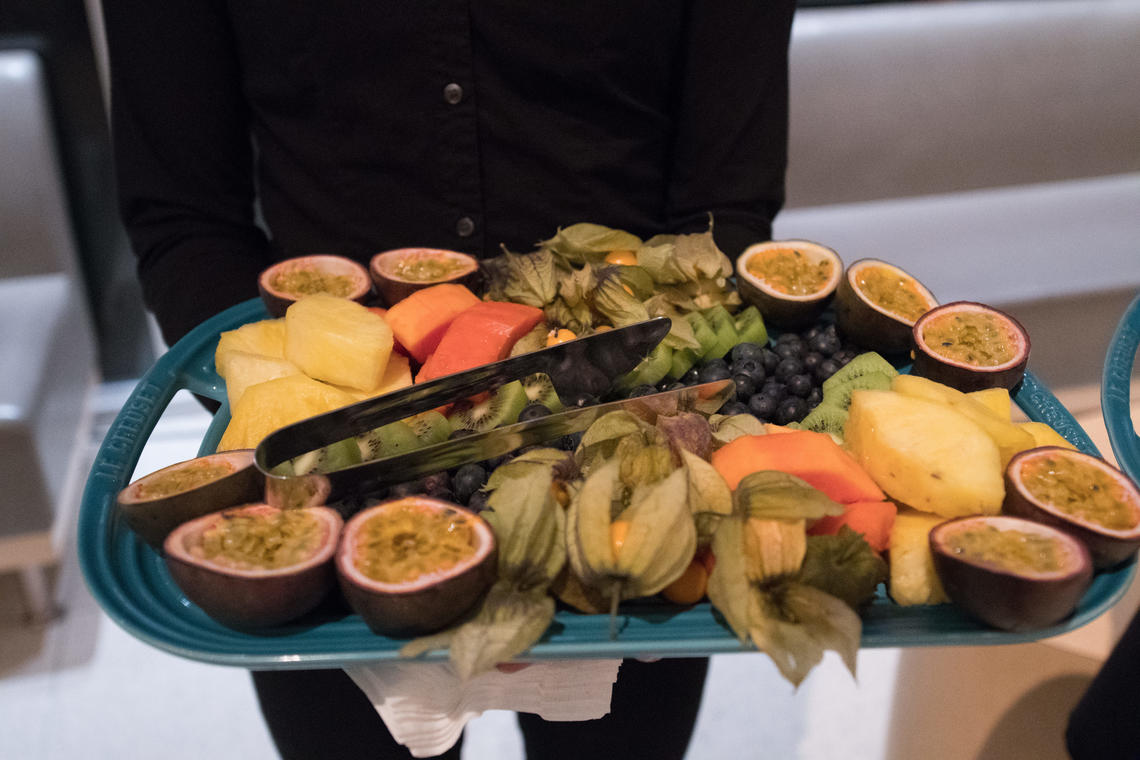Feb. 27, 2018
UCalgary food service leftovers to be donated to two local charities

UCalgary is strengthening our sustainability and our connection to industry and community.
Riley Brandt, University of Calgary
If you’ve ever been to a UCalgary function that provided food and snacks, or noticed extra meals in the main dining hall, you may have wondered what happens to the leftovers.
If you asked before 2018, your answer would have been simple: Aramark, the university’s food service provider, composts post-consumer waste to ensure food waste is diverted from landfills. But this year, Aramark, the Office of Sustainability, University of Calgary Food Services and the student body have come together to not only shrink the university’s environmental footprint, but also improve our socioeconomic sustainability.
UCalgary is partnering with Leftovers, an organization that works as an in-between for charities and food providers, to ensure extra food doesn’t rot in our compost, but nourishes bodies of those who need it.
“This partnership came from the need to be conscious of where our leftover food is going,” says Aramark operations manager Ashley Browning. “We have programs in place to curb food waste, but we didn’t have one that allows us to give back to the community the way this does.”
Amira Elwakeel, a third-year engineering student and a member of the student club Engineers without Borders, has a special interest in sustainability. She’s part of a collaborative team hosting Food Waste Awareness Week in mid-March. After hearing the university’s new tactic to divert food waste to those who need it most in our community, Elwakeel felt it was a positive change and long-overdue decision.
“As a huge campus of over 30,000 people, there’s no question there’s a ton of food wasted,” Elwakeel says. “There’s always going to be leftovers, and putting them to use in the community instead of wasted is amazing.”
Who benefits?
Once the program is up and running fully in the coming months, University of Calgary Food Services and Aramark will donate extra food safely and efficiently to two local charities: Made by Momma and Antyx Community Arts.
Since 2011, Made by Momma has provided healthy homemade meals, wholesome baked goods, baby essentials, children’s items, supportive in-home visitors to women and children who need it most. This 100-per-cent volunteer-run, grassroots movement allows mothers the time they need to rest, recover and focus on their families and their health.
Antyx Community Arts, on the other hand, is a community arts company that combines art and community development to engage youth in the power of community connection. Since 2010, Antyx and their involved youth have created community murals, plays, performances, videos and musical projects all aimed at creating vibrant communities.

Leftovers can transport even the freshest of foods with the help of refrigerated trucks.
Riley Brandt, University of Calgary
Curbing food waste is more complicated that you think
It’s no secret that 30 per cent of food produced ends up in a landfill or compost bin. When you consider that more than 170,000 Calgarians visited the food bank last year, diverting extra food to hungry bellies seems like a no-brainer. It's not so simple, says Browning. “Diverting extra food to charity organizations comes up regularly, especially with catering,” Browning says. “The struggle is we’re still liable for food after it leaves the site.”
Donating perishable food carries a significant financial and logistical potential liability, especially around food safety regulations. “Packaging, temperature sensitivity, transportation … Those are all elements we need to assess to keep everyone safe,” Browning says. “Most companies find it difficult to take that risk.”
To ensure that safety, Aramark and University of Calgary Food Services partnered with Leftovers, an organization started by UCalgary alumni Lourdes Juan, to solve this very issue. Leftovers delivers perishable food charities to alleviate stress and fill the kitchens with fresh items.
This way, Browning says, everyone wins.
Other ways to help
Both Aramark and the student population say donating leftovers isn’t the only way UCalgary can reduce its environmental and socioeconomic footprint. Reducing the volume of extra food is also an essential step.
To combat this, Aramark ensures their staff are taught about portion sizes, proper vegetable and fruit cutting methods, prediction guidelines that more accurately predict how much food is needed per guest, as well as vigorous composting.
“I think the root problem is there’s an excess amount of food in Canada,” Elwakeel says. “But in the reality we live in, (partnering with Leftovers) is a good move.”
For more information on how to reduce your food waste footprint, Elkwakeel encourages students, staff and faculty to get involved in Food Waste Awareness Week from March 12 to 15 at the Information and Communications Technologies Building.
